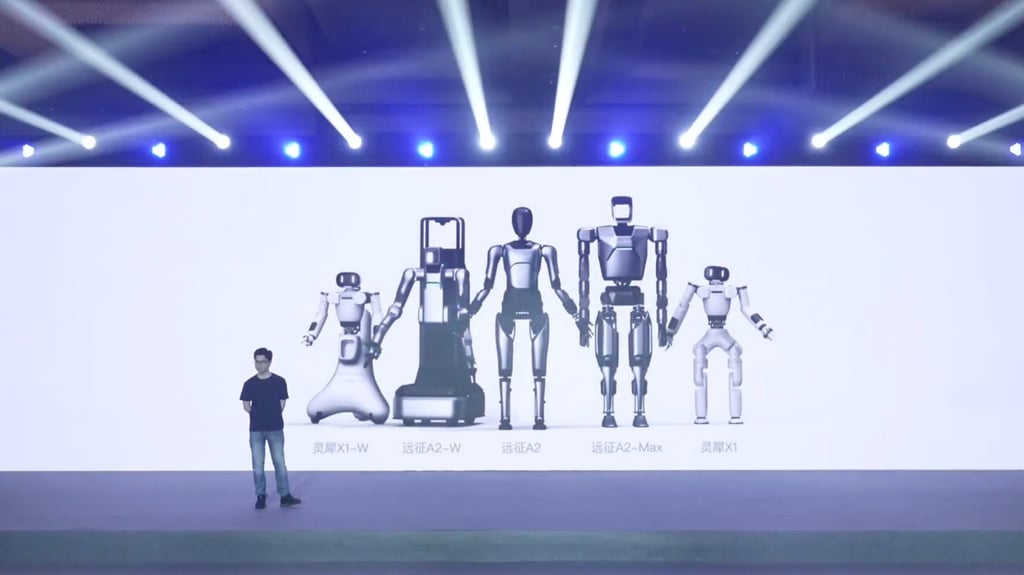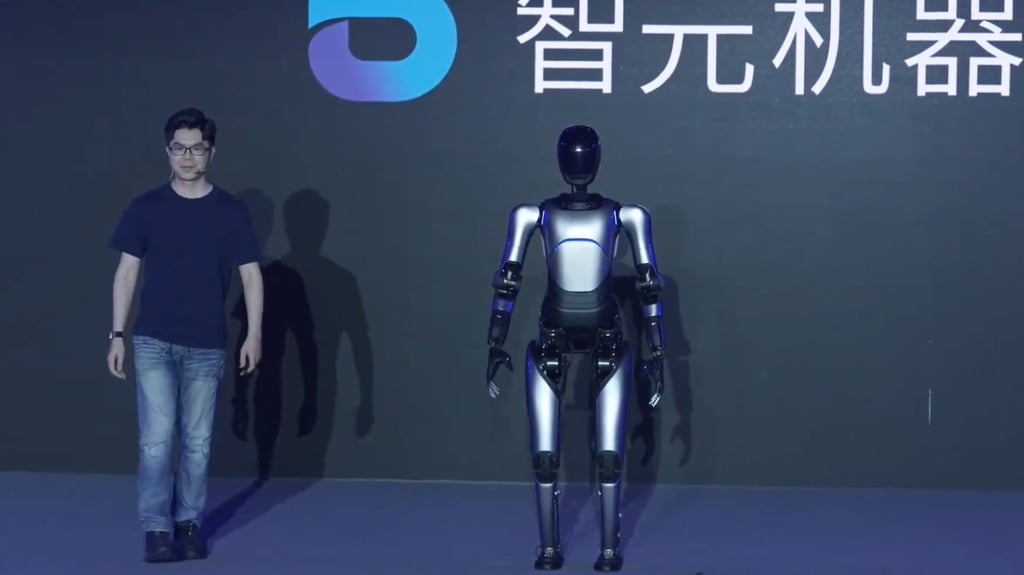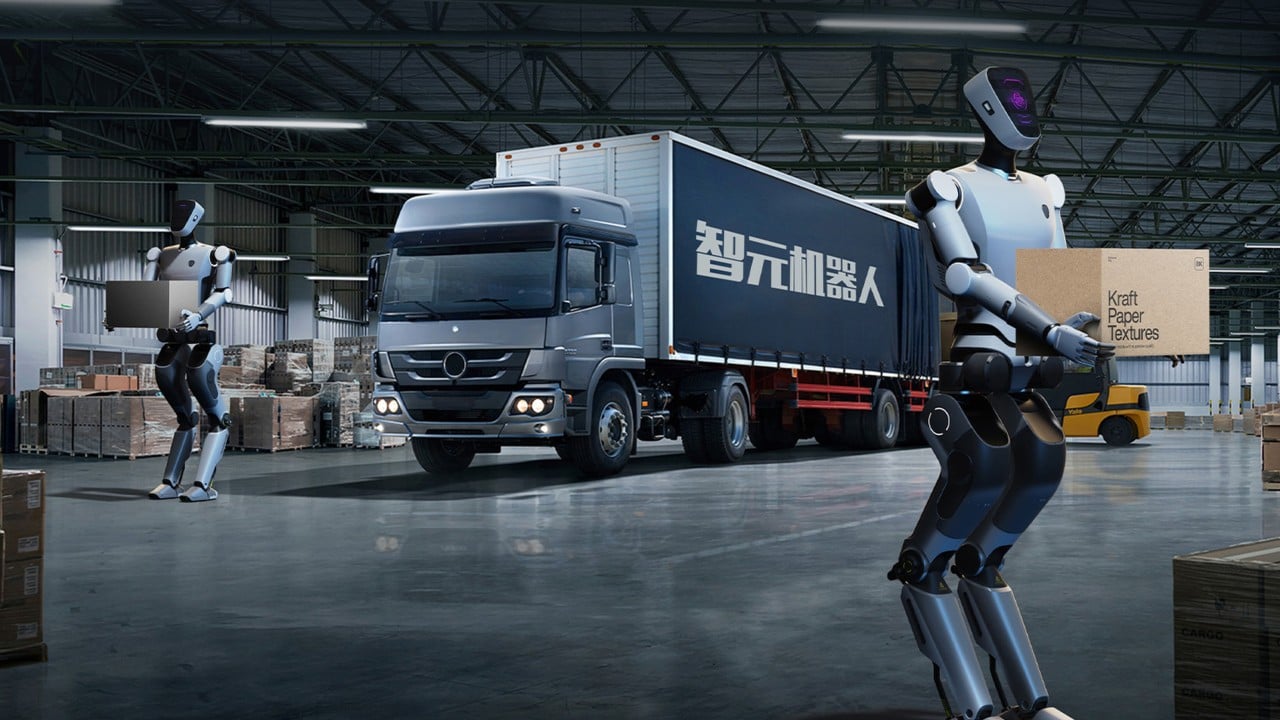Robotics start-up Agibot, founded by Huawei Technologies’ former “Genius Youth” recruit Peng Zhihui, on Sunday unveiled its family of humanoid robots, as the Shanghai-based firm looks to challenge Elon Musk-led Tesla’s own Optimus automatons.
“We have made some breakthroughs … in product research and development in the past year, and we’re now at the forefront of the industry,” 31-year-old Peng declared at the online video launch of the company’s new-generation humanoid robots.
Backed by venture capital firm HongShan, Agibot on Sunday introduced five models of wheeled and biped humanoid robots designed for diverse applications, from household tasks to industrial operations.
The company’s flagship Yuanzheng A2 biped humanoid robot – standing at 175 centimetres and weighing 55 kilograms – is built with various sensors and powered by artificial intelligence (AI) that enables it to see and hear as well as understand text, audio and visual information. It was designed to perform tasks as delicate as inserting a thread through the eye of a needle.

Agibot expects to start shipping the robots from October, with a target of 300 total units shipped by the end of the year, company executive Jiang Qingsong said in a report by digital newspaper The Paper, run by state-owned Shanghai United Media Group.
According to a separate report by local media cls.cn, Jiang said Agibot expects to compete directly against Tesla’s Optimus humanoid robots, which Musk revealed at the firm’s annual shareholders’ meeting in June could be up for sale at the end of next year and ready for use at its factories.
“We don’t think the gap between the two sides [Optimus and Agibot] will be big,” the cls.cn report quoted Jiang as saying. “Our commercialisation and cost-control ability is better than that of Tesla.”
Agibot’s optimism reflects how humanoid robots have become a new high ground in technological and scientific competition between the world’s two-largest economies, as a global AI frenzy continues to attract the interest of a growing number of investors, Big Tech firms and developers around the world.

According to a report in April by government-backed think tank China Centre for Information Industry Development, the market for humanoid robots on the mainland is projected to be worth more than 20 billion yuan (US$2.8 billion) by 2026. That would mark a big leap from what the report estimated as a US$3.9-billion-yuan market in 2023.
Agibot has so far attracted a number of marquee investors. Besides HongShan, Hillhouse Investment, electric vehicle giant BYD and the Shanghai Lingang Economic Development (Group) have invested in the start-up on the back of founder Peng’s track record.
Peng studied at the University of Electronic Science and Technology of China in southwestern Sichuan province, where he launched two start-ups involved in 3D printers and biped robots. He graduated with a master’s degree in information technology in 2018.
In 2020, Peng’s reputation as a wunderkind in AI led him to be hired by Huawei. He reportedly drew an annual salary of up to 2 million yuan at Huawei, but left the company at the end of 2022 to pursue his passion for robotics.


